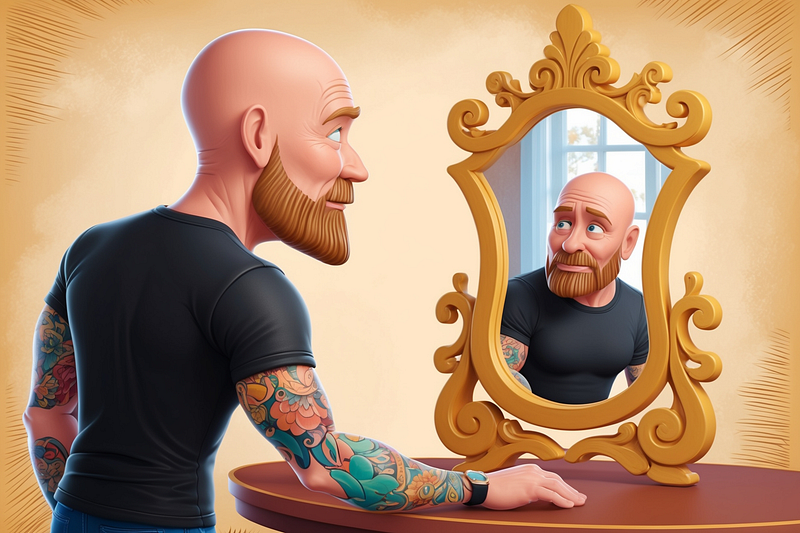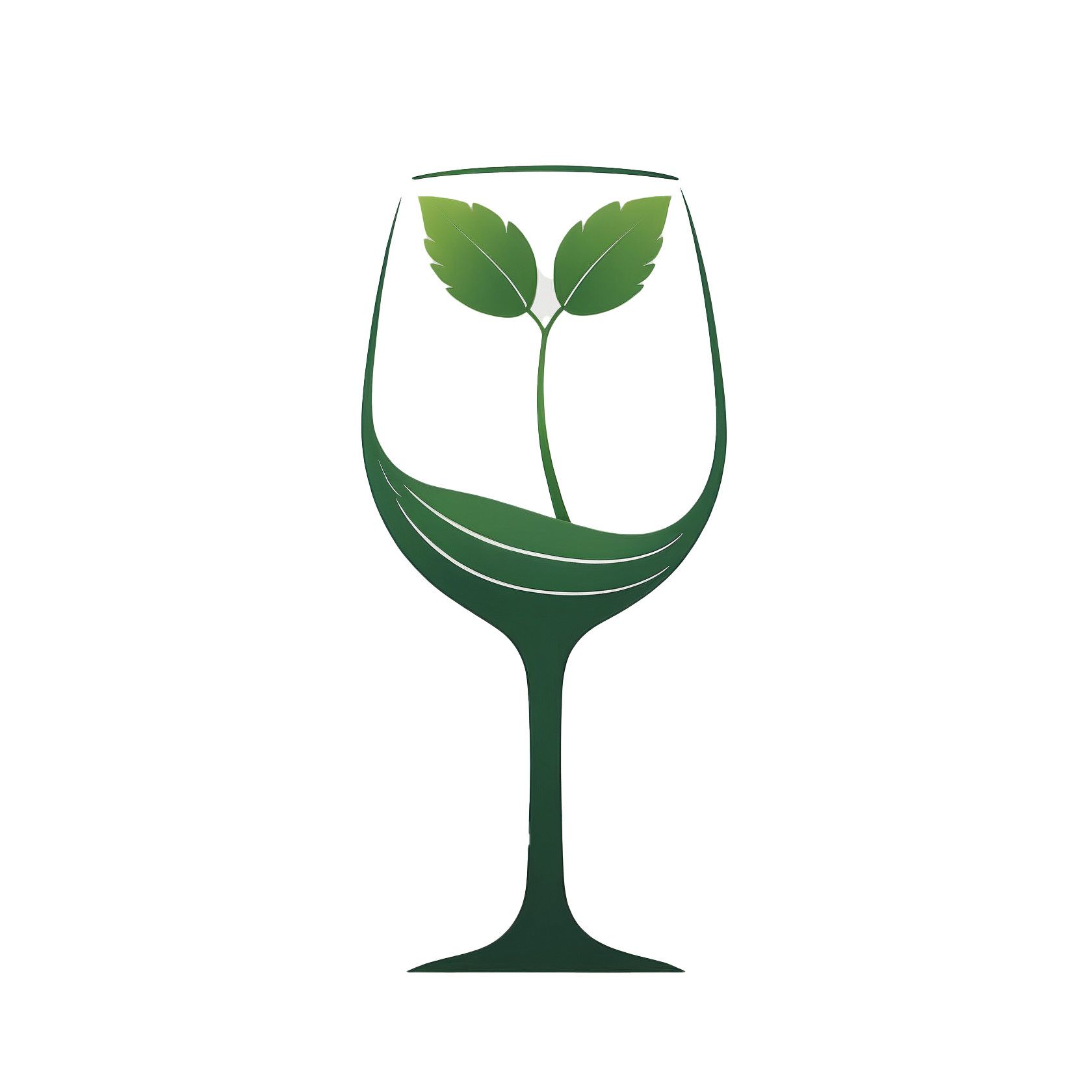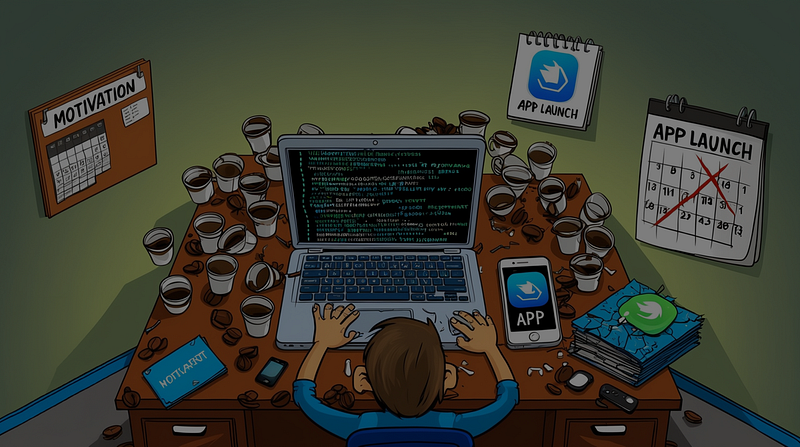Reflection — Mirror, Mirror on the Wall

Hey there, fellow wanderers on this crazy path we call life! Today, I’m gonna talk about my latest AA session and the wild ride of self-reflection it sent me on. We’re diving into the murky waters of character defects and personal responsibility.
The Mirror Doesn’t Lie (Even When We Want It To)
There I was, sitting in my AA meeting, thinking I’d just coast through another session. But nope! The universe had other plans. We were discussing Step 4, and let me tell you, it hit me like a ton of bricks. We’re talking about taking a good, hard look at ourselves — warts and all.
Now, I’ve always thought of myself as a pretty decent human. I mean, who doesn’t, right? But as I started digging into my past behaviours, I realised I’d been playing the blame game like it was an Olympic sport.
Non paywalled Link (for non Medium readers)
The Blame Game: Where Everyone Loses
Remember that time I didn’t get that promotion at work? Oh boy, did I have a field day with that one. It was my manager’s fault for not recognizing my genius. It was my coworkers’ fault for outshining me. I probably blamed the office plant for not sending out good vibes. Although, come to think about it — was I really putting in the effort? Or was I too busy nursing hangovers and sneaking drinks to actually do my job?
And don’t even get me started on my relationships. I was the king of deflection, blaming my partner for my drinking. “If you hadn’t done X, I wouldn’t have needed to drink!” Sound familiar to anyone? But looking back, I realize I was just using that as an excuse to avoid taking responsibility for my own actions.
The Dependency Trap
In the throes of addiction, we often cling to others like a drowning person grasps at anything that floats. I was that person, clutching at my ex as if she were my only lifeline in a stormy sea. It wasn’t just about practical help; it was emotional too. I expected her to bear the weight of my happiness, my security, even my excuses for drinking. As Epictetus wisely asks, “Who comes to the School with a sincere wish to learn: to submit his principles to correction and himself to treatment? Who, to gain a sense of his wants?” I see this as the challenge before us — to find that strength within ourselves, to submit to treatment, and to gain a true sense of our own needs and desires.
This dependency isn’t just about relationships. It’s intertwined with our addiction, creating a toxic cocktail of reliance on both substances and people. We’re not just dependent on our poison of choice; we’re dependent on others to enable our behavior, clean up our messes, and provide the stability we can’t muster ourselves. It’s like grasping at a single feather and expecting it to support our entire weight. We all know how that story ends — the feather comes loose, and suddenly you’re free-falling.
Breaking free from this trap is terrifying, but liberating. It’s about reclaiming our power and autonomy. It’s about learning to live happily with or without the things (or people) we think we can’t live without.
The Illusion of Coping
When we eventually split up, fear hit me like a freight train. How was I gonna cope without someone doing everything for me? Living in a foreign country suddenly seemed terrifying. It was like being tossed into the deep end without a life jacket.
I didn’t exactly rise to the occasion like some phoenix from the ashes. Nope, I coped… kinda. And by “coped,” I mean I leaned harder into my old frenemy: alcohol. It was there, always ready to numb the fear, to blur the edges of my newfound loneliness.
As days turned into weeks, my drinking got worse and worse. It was like I was trying to fill the void left by my ex with booze. It didn’t work. Instead of learning the language or figuring out how to navigate daily life on my own, I was navigating my way to the bottom of every bottle I could find.
Looking back, I can see how this reaction mirrored what Seneca wrote about illness: “I often entertained the impulse of ending my life then and there; but the thought of my kind old father kept me back.” While I wasn’t contemplating ending my life, I was certainly trying to escape it through alcohol.
The Power of Self-Reflection
Now, as I’m writing these blog posts and sharing my stories, I’m seeing my past actions in a whole new light. It’s like I’m finally willing to look in that mirror and see the real me — flaws and all. And you know what? It’s not as scary as I thought it would be.
Sure, acknowledging our defects can be tough. It’s not exactly a fun Friday night activity to list out all the ways you’ve messed up. But there’s power in that honesty. It’s the first step towards real change.
Finding Peace in Acceptance
These days, I’m learning to find peace in acceptance. Acceptance of my past actions, of my flaws, and of the things I can’t control. It’s not about beating myself up for past mistakes. It’s about acknowledging them, learning from them, and using that knowledge to make better choices moving forward.
The Road Ahead
Here I am, at the beginning of sobreity and facing life head-on. No more blame game, no more extreme dependency. Just me, taking it one day at a time, and trying to be a little bit better than I was yesterday.
To all of you out there on your own journey of self-discovery, remember: it’s okay to look in the mirror and not like everything you see. The important thing is that you’re looking. Because that’s where real growth begins.
Stay strong, stay sober, and don’t take that first drink.
Stoic perspective on self-reflection and personal responsibility:
The Stoic philosophy strongly emphasizes self-examination and taking responsibility for our actions. The Stoics believed that true freedom comes from understanding what is within our control and what isn’t, and then focusing our energy on what we can change — our own thoughts and actions.
Relevant quote:
Epictetus said
What is the fruit of these teachings? Only the most beautiful and proper harvest of the truly educated — tranquility, fearlessness, and freedom.
This quote reminds us that the purpose of self-examination and education is not to punish ourselves, but to achieve inner peace and freedom from our destructive patterns.
Practical Stoic exercise:
Practice the “Evening Review”:
- At the end of each day, find a quiet moment to reflect.
- Ask yourself these questions:
- What did I do well today?
- Where did I fall short of my principles?
- How can I improve tomorrow? - Write down your answers without judgment.
- Conclude by setting an intention for the next day.
This exercise helps cultivate self-awareness and promotes continuous self-improvement, key aspects of both Stoic philosophy and recovery.
Stoic thought for the day:
“The chief task in life is simply this: to identify and separate matters so that I can say clearly to myself which are externals not under my control, and which have to do with the choices I actually control.” — Epictetus
This thought encapsulates the essence of personal responsibility from a Stoic perspective. By clearly distinguishing between what we can and cannot control, we can focus our energy on making better choices and taking responsibility for our actions, rather than blaming external circumstances or other people for our problems.


Member discussion